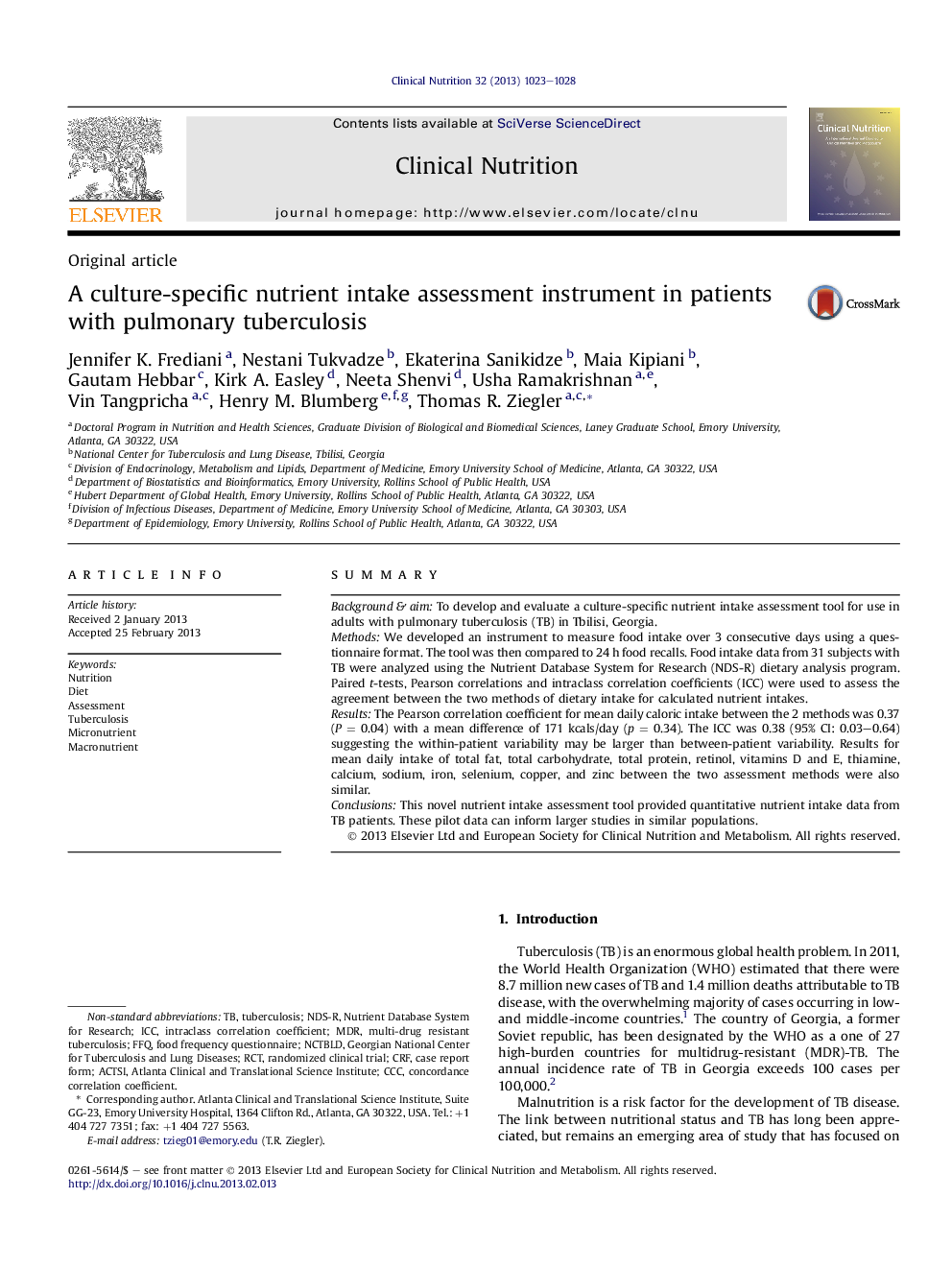| Article ID | Journal | Published Year | Pages | File Type |
|---|---|---|---|---|
| 5872355 | Clinical Nutrition | 2013 | 6 Pages |
SummaryBackground & aimTo develop and evaluate a culture-specific nutrient intake assessment tool for use in adults with pulmonary tuberculosis (TB) in Tbilisi, Georgia.MethodsWe developed an instrument to measure food intake over 3 consecutive days using a questionnaire format. The tool was then compared to 24 h food recalls. Food intake data from 31 subjects with TB were analyzed using the Nutrient Database System for Research (NDS-R) dietary analysis program. Paired t-tests, Pearson correlations and intraclass correlation coefficients (ICC) were used to assess the agreement between the two methods of dietary intake for calculated nutrient intakes.ResultsThe Pearson correlation coefficient for mean daily caloric intake between the 2 methods was 0.37 (P = 0.04) with a mean difference of 171 kcals/day (p = 0.34). The ICC was 0.38 (95% CI: 0.03-0.64) suggesting the within-patient variability may be larger than between-patient variability. Results for mean daily intake of total fat, total carbohydrate, total protein, retinol, vitamins D and E, thiamine, calcium, sodium, iron, selenium, copper, and zinc between the two assessment methods were also similar.ConclusionsThis novel nutrient intake assessment tool provided quantitative nutrient intake data from TB patients. These pilot data can inform larger studies in similar populations.
